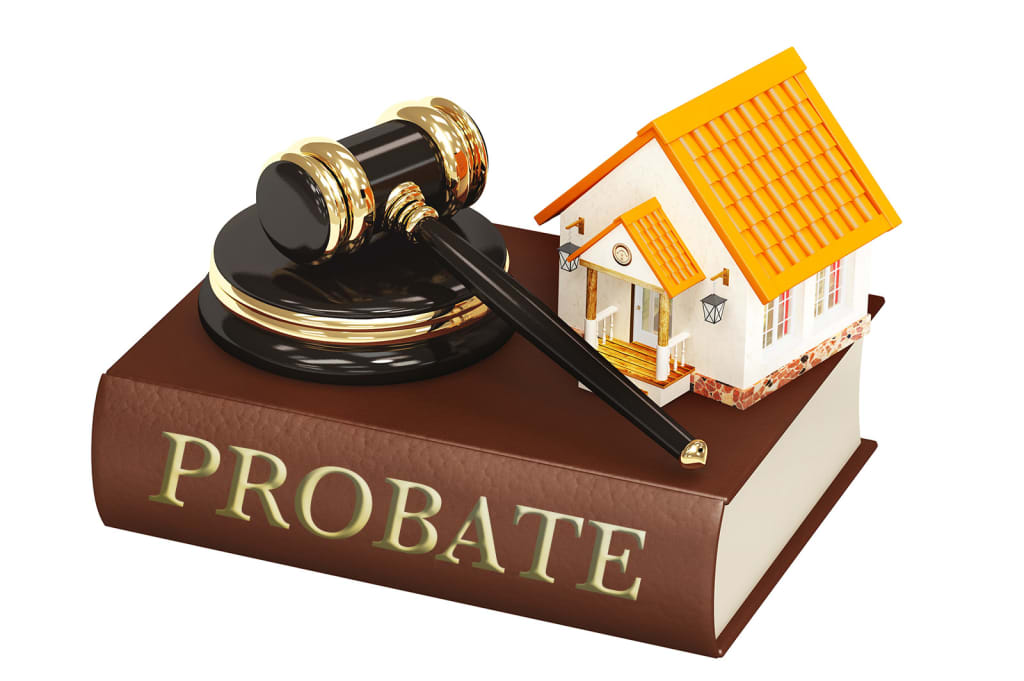The Differences Between Probate And Non-Probate Assets
Probate is the legal process by which a person's assets are distributed after they pass away. However, not all assets go through probate.

Probate is the legal process by which a person's assets are distributed after they pass away. However, not all assets go through probate.
In fact, some assets are considered non-probate assets, which means they are transferred directly to the designated beneficiaries without going through probate.
In this blog, we'll take a closer look at the differences between probate and non-probate assets.
Probate Assets
Probate assets are assets that are owned solely by the deceased person and are not governed by a beneficiary designation or joint ownership.
These assets are subject to probate, which means they must go through the court-supervised process of transferring ownership to the heirs. Some examples of probate assets include:
- Real estate owned solely by the deceased person
- Bank accounts and investment accounts that are solely in the deceased person's name
- Personal property, such as jewelry, artwork, and furniture
- Business interests, such as a sole proprietorship or partnership
When a person passes away and they have probate assets, the assets must go through the probate process before they can be distributed to the heirs.
The probate process involves several steps, including validating the will, appointing an executor, settling any outstanding debts and taxes owed, and distributing the remaining assets to the heirs.
The probate process can be time-consuming and expensive, and it can delay the distribution of assets to the heirs.
Non-Probate Assets
Non-probate assets are assets that are transferred directly to the designated beneficiaries without going through probate. These assets are not subject to the court-supervised process of transferring ownership to the heirs. Some examples of non-probate assets include:
- Assets held in a trust
- Life insurance policies with a designated beneficiary
- Retirement accounts with a designated beneficiary, such as an IRA or 401(k)
- Bank accounts and investment accounts held in joint tenancy with right of survivorship
- Assets held in a transfer-on-death (TOD) or payable-on-death (POD) account
When a person passes away and they have non-probate assets, these assets are transferred directly to the designated beneficiaries without going through probate.
This means that the distribution of these assets is typically much faster and less expensive than the distribution of probate assets.
Differences Between Probate And Non-Probate Assets
The main difference between probate and non-probate assets is the process by which they are transferred to the heirs.
Probate assets must go through the court-supervised process of transferring ownership to the heirs, while non-probate assets are transferred directly to the designated beneficiaries.
This means that the distribution of non-probate assets is typically faster and less expensive than the distribution of probate assets.
Another difference between probate and non-probate assets is the level of control that the deceased person has over the assets.
With probate assets, the deceased person has complete control over the assets during their lifetime, and the assets are subject to the probate process after they pass away.
With non-probate assets, the deceased person typically has some control over the assets during their lifetime, such as designating a beneficiary, and the assets are transferred directly to the beneficiary after they pass away.
Finally, there are some tax implications to consider when it comes to probate and non-probate assets.
Probate assets are subject to estate taxes and capital gains taxes, while non-probate assets are typically not subject to these taxes.
This means that non-probate assets can be a more tax-efficient way to transfer assets to heirs than probate assets.
Probate And Non-Probate Assets Are Two Different Types of Assets
Probate assets must go through the court-supervised probate process before they can be distributed to the heirs, while non-probate assets are transferred directly to the designated beneficiaries.
Non-probate assets are typically faster and less expensive to distribute than probate assets, and they can also be a more tax-efficient way to transfer assets to heirs.
It's important to understand the differences between probate and non-probate assets when creating an estate plan.
By identifying which assets are probate assets and which are non-probate assets, you can ensure that your estate plan is structured in a way that minimizes the time, cost, and tax burden on your heirs.
An experienced estate planning attorney can help you identify which assets are probate assets and which are non-probate assets and can assist you in creating an estate plan that meets your needs and goals.
Conclusion
Probate and non-probate assets are two different types of assets that are subject to different transfer processes.
It's important to understand the differences between these two types of assets when creating an estate plan, as they can have a significant impact on the time, cost, and tax burden of distributing your assets to your heirs.
With the help of an experienced estate planning attorney, you can create an estate plan that minimizes these burdens and ensures that your assets are distributed according to your wishes.
About The Author
Clea Smith is a USA-based author on Legal issues related to estate planning, will & trust business law, and elder law. Clea Smith does her best writing on these topics that help users to find the best solutions to their FAQ on estate planning, probate real estate, living trust vs will, and more about legal family issues. Author Smith Clea can be reached through https://rochesterlawcenter.com






Comments
There are no comments for this story
Be the first to respond and start the conversation.